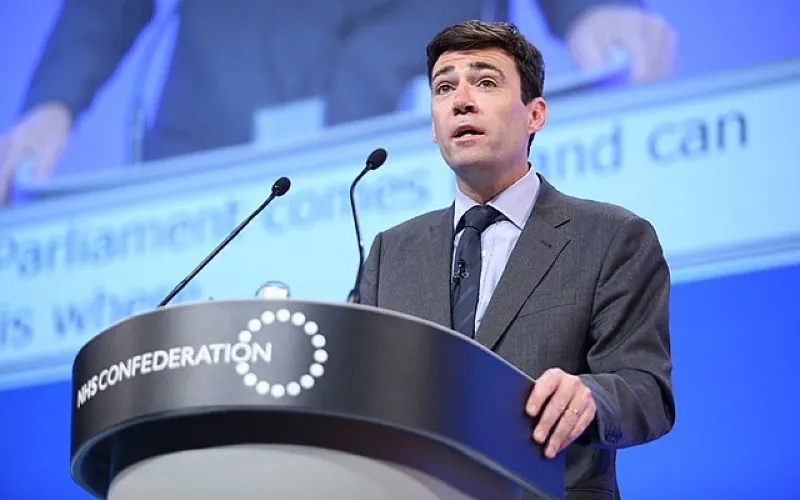Chancellor Jeremy Hunt plans to introduce 110 measures to boost the UK’s economic growth.
Delivering his Autumn Statement in the House of Commons today, he outlined tax breaks for businesses; billions of pounds of investment for green energy, aerospace, life sciences and zero-emission vehicles; and cuts to national insurance after a more positive than expected outlook from the independent Office for Budget Responsibility.
Hunt also pledged £500 million of investment over the next two years to fund artificial intelligence innovation centres, and announced new investment zones for West Yorkshire, the West Midlands, East Midlands, Greater Manchester, Wrexham and Flintshire in Wales.
On Tuesday the Chancellor announced a £320 million plan to drive innovation and unlock the first tranche of investment from his Mansion House Reforms, measures which are expected to provide an extra £1,000 for people’s pension pots every year while helping pension funds invest in high-growth, innovative companies through new investment vehicles.
“In the last decade we have grown to become the third largest technology sector in the world – double the size of Germany and three times the size of France; the biggest life sciences industry in Europe; Europe’s third largest generator of renewable electricity after Germany or Norway; and the eighth largest manufacturer in the world,” Hunt told the Commons.
“When it comes to tech, we know that AI will be at the heart of any future growth. I want to make sure our universities, scientists and startups can access the compute power they need.”
The National Living Wage will also increase from £10.42 to £11.44 an hour from April – and apply to 21- and 22-year-olds for the first time – while state pension payments will increase by 8.5% from April.
So what were the main business policies? And how did the tech and wider business community react?
Growth policies
Among 110 measures aimed at boosting economic growth are the permanent establishment of the ‘full expensing’ tax break – which allows companies to deduct spending on new machinery and equipment from profits.
There was also £4.5bn of funding over the next five years to attract investment to strategic manufacturing sectors, including green energy (£960m), aerospace (£975m), life sciences (£520m) and zero-emission vehicles (£2bn).
Tim Mills, managing partner at ACF Investors, said measures such as simplifying R&D tax credits and pension fund reform are “positive changes that will encourage early-stage investors to back exciting British companies and help foster an ecosystem that is able to turn the thriving startups into world-beating businesses”.
“However, if our politicians collectively are serious about wanting to deliver growth and create a science and technology superpower, it is essential that they use the Autumn Statement as a stepping stone. The investment community has been stung many times in the past by flip-flopping over policy decisions. To make investments that play out over the long term requires stability in policy and a clear vision for the future.”
Sarah Turner – ambassador of private members’ club HomeGrown and co-founder & CEO of female-focused angel investment network Angel Academe, praised “cautiously supportive policies… that are unlikely to stoke inflation”, adding: “Continuing to drive down inflation is still the number one priority, and combined with simplified R&D tax credits will help bring stability for UK businesses.”
Gavin Poole, CEO of London technology park Here East, described the Autumn Statement as “pro-business and pro-productivity”.
“Committing £50m to engineering apprenticeships will pay dividends not only for industry, but also for the budding engineers that will realise the value of a career in this growth sector,” he said. “As the product of an engineering apprenticeship myself, I recognise the importance of investing in people in this way.
“The Chancellor’s acceptance of all the recommendations of the University spinout review is significant. Our universities are one of our greatest assets and their excellence should translate into entrepreneurial success. The recommendations of this review will ensure that spinouts become the next tranche of the UK’s business success stories.”

Naureen Zahid (above), investor relations director at OpenOcean, said the Autumn Statement was “high on ambition but scant on truly impactful policy”.
“The UK has a proud history of pioneering new technologies, especially within leading verticals such as BioTech, HealthTech and DeepTech, many of which from the research departments of our world-leading academic institutions – but this leadership in pioneering innovation is under threat without urgent government action. This is evident from the number of high-growth startups that have continued to flee abroad, and the Autumn Statement was a missed opportunity to stem the future exodus,” she said.
“Whilst the government has made progress with the Mansion House Compact Agreement, a £320m plan to help unlock pension fund investment for technology and science schemes is still the tip of the slow thawing iceberg – pension fund investment mandates will continue to be dictated by their risk frameworks and liability-driven investment approach.”
Diane Gilpin, founder of Smart Green Shipping, said the clean energy funding “indicates an understanding of the potential of green growth and its benefit to the UK economy… but when we’re talking about major infrastructure projects such as carbon capture, upgrading electricity networks or developing offshore wind capacity, it’s a drop in the ocean for what’s actually needed”.
She added: “Innovation in climate technologies is happening outside of the UK, leaving us as a follower rather than a leader. We possess the talent and skills to make the UK a pioneer of novel and transformational solutions but that will only happen if the government provides the right support.
“The Chancellor’s pledge to make full expensing permanent for businesses is of no benefit at all to pioneering SMEs in the critical R&D phase. The only ones that stand to benefit are big business. What we need to focus on is accelerating early-stage innovation. This tax break will simply not move the needle for small businesses.”
Arran Dewar, executive director at SIS Ventures, said the government’s prioritisation of investment into startups, scaleups and spinouts was “encouraging”.
However he added: “It is vital that the benefit of this investment is felt across the UK, not just within the Golden Triangle. Scotland has a rich reputation for innovation, going back generations, but we’ll only continue to produce world-leading inventions if our entrepreneurs and scientists secure access to the funding they require to translate innovative ideas into game-changing businesses.”
Investment zones
Financial incentives for investment zones and tax reliefs for freeports were extended from five years to 10 years, while new investment zones were announced for West Yorkshire, the West Midlands, East Midlands and Greater Manchester, as well as Wrexham and Flintshire in Wales.
Hunt said he expects these to catalyse billions of pounds of private investment and tens of thousands of jobs.

Greater Manchester Mayor Andy Burnham (above) said the Autumn Statement “contained some good news for Greater Manchester” but said there are also gaps which gave him cause for concern.
“I fear it will not ease the cost-of-living pressures this winter on our residents with the lowest incomes. Benefit uplifts will not come into force until April 2024 and the cut in National Insurance won’t benefit those on the lowest pay rates.
“We very much welcome the confirmation from the Chancellor that Greater Manchester will get an Investment Zone backed by £160 million of government funding, boosting the growth of our thriving advanced manufacturing and materials sector. It will help us bring forward our plans for Atom Valley and deliver industries of the future and jobs to match in the north-east of Greater Manchester.”
Katie Gallagher, managing director of membership body Manchester Digital and chair of the UK Tech Cluster Group, welcomed the monetary plan but added: “Overall, we would have liked to have seen more policies which enable all businesses and all workers to adopt digital technologies and access opportunities for upskilling.
“With the right policies, the UK regional tech hubs can deliver an important boost to the local economy and create levers and opportunities to lift up the whole region.”
AI centres
Hunt said that the £500m investment into new AI centres will build on the success of existing supercomputing centres in Edinburgh and Bristol.
Derreck Van Gelderen, data and AI expert at PA Consulting, said investment in AI needs to be about building skills and talent as much as infrastructure.
“Earlier this year our Minister of AI announced three focus areas: Investment, Regulation and Reach. Today’s Autumn Statement shows that although there is investment going into our infrastructure, more needs to be done to build the AI talent pool and drive its adoption across the whole country.
“Whilst the UK is following up on its promise of providing an additional £500m investment to fund more innovation centres and provide AI developers the compute they need, when compared to the investments announced today in other sectors it may not be enough to ensure that the UK becomes, as the Chancellor states, ‘an AI powerhouse’.”
Dr Marc Warner, CEO of AI company Faculty, said the commitment was “another positive step along the Yellow Brick Road – a path to safely harnessing the technology’s vast benefits whilst managing its risks”.
He added: “What’s crucial now for governments, businesses and individuals is to continue making good choices – and that means safe, connected, and human-first AI.”
Ben Bilsland, technology and media senior analyst at RSM UK, said many in the sector may challenge the weight of the government’s commitment in this key area. “With over £37bn of AI risk capital investment across AI globally in 2023 alone, the way this investment is deployed may be crucial.”
Personal circumstances
The National Living Wage will increase from £10.42 to £11.44 an hour from April – and apply to 21- and 22-year-olds for the first time – while state pension payments will increase by 8.5% from April.
There will also be cuts to national insurance at many levels, including for self-employed people.
Peter Edgar, CFO at RetailTech firm Huboo, said while the living wage boost will help the lowest-paid workers in the “very short term”, the increase at a time when AI and automation are already disrupting how businesses think about hiring “feels like a misstep”.
“These technologies have fantastic potential to empower human workers and make us all more productive, but if we make the basic cost of labour too expensive, businesses may simply decide to dispense with the humans altogether,” he warned.
Alan Thomas, UK CEO at Simply Business – a provider of small business insurance – said the Chancellor’s reforms for small businesses and the self-employed “will be well received by many”.
However he added: “Concerns remain around whether they can fortify this over-stretched sector… he also failed to commit to increasing energy support for small businesses. Thousands of small businesses are being held back – not because of apathy or lack of ambition, but because of a set of circumstances which are stretching them to the limit. The Chancellor’s aspiration to ‘supercharge’ the growth of the UK’s SMEs has, for many, missed the mark.”
Definitely not unlucky! 13 startups to pitch at North East & Tees event

